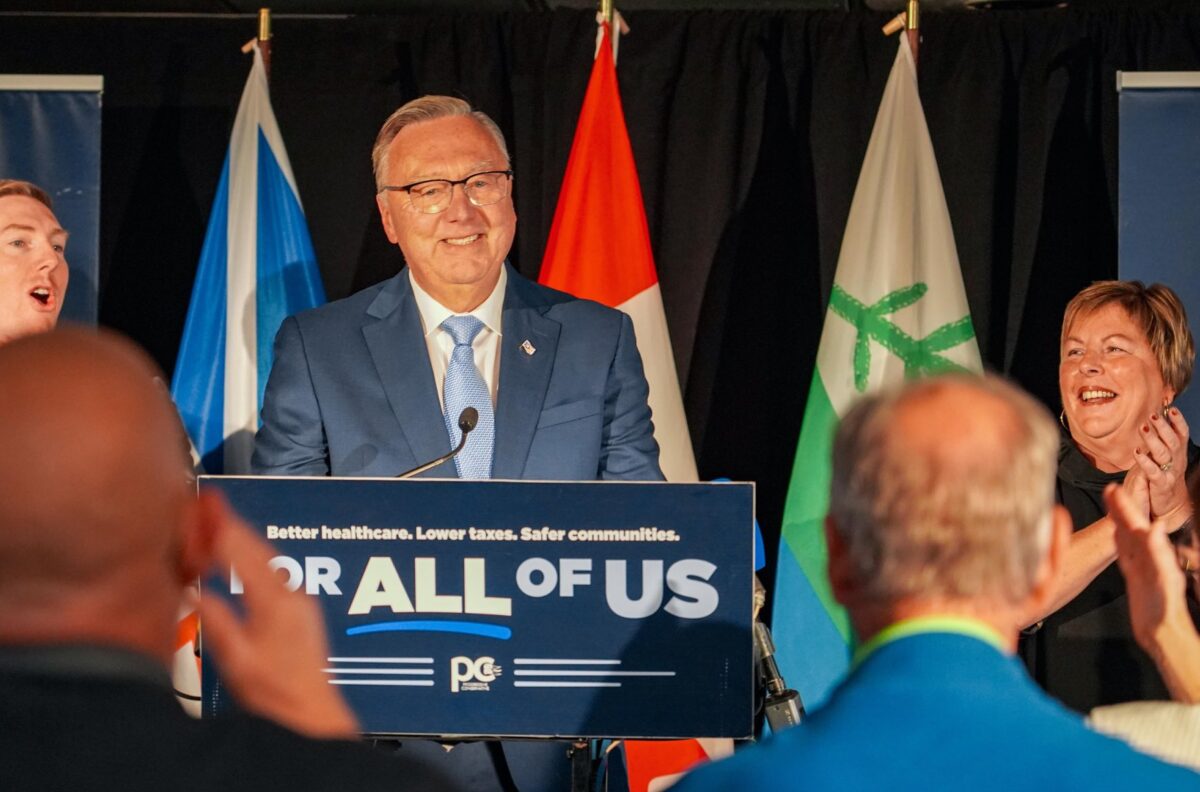Is Newfoundland reaching its breaking point? Foster families struggle as Hydro-Québec deal sparks new power battle

Premier-designate Tony Wakeham. Image Credit: TonyWakehamNL/X
The province of Newfoundland and Labrador is facing two defining challenges, a mounting foster care funding crisis threatening vulnerable children and a hydroelectric power dispute with Hydro-Québec that could reshape the province’s economic future.
Foster Parents Sound Alarm Over Rising Costs and Delayed Payments
Across Newfoundland and Labrador, foster parents say financial delays and stagnant rates are pushing them to the brink. Families like Diane and Garry Hillier, who have cared for over 20 children in nearly two decades, describe the emotional reward of fostering as priceless, but warn the financial pressure is now unbearable.
“The rates haven’t increased since 2012,” said Hillier. “Many of us are still waiting months to be reimbursed for expenses we’ve already covered.”
Under the current block-funding model, foster parents receive about $1,500 monthly per child, but inflation and reimbursement backlogs, some exceeding $20,000 owed, have made daily life increasingly difficult.
READ ALSO
Is Nicolas Sarkozy’s imprisonment marking a turning point for France’s political class?
Malala Yousafzai expands her mission: From Education rights to Women’s sports empowerment
Declining Support and Growing Shortages
There are now over 900 children in care across the province, but foster homes have fallen from 650 in 2021 to just 550. The shortage of social workers and lack of respite care leave many foster parents overwhelmed.
“We’re hearing from families who can’t afford healthy meals or new clothes for growing kids,” said Kelli Hodder, Executive Director of Foster Families NL. “Some are even going into debt.”
Hodder urged the provincial government to act swiftly, calling for immediate funding increases and faster payment processing. “Government has the power to fix this right now,” she said. “It just takes political will.”
Political Shifts Add to Pressure
Meanwhile, Newfoundland’s political landscape is shifting dramatically after the Progressive Conservative Party’s election victory, led by Premier-designate Tony Wakeham.
Wakeham has vowed to review a controversial hydroelectricity agreement with Hydro-Québec, a move that could reignite decades-old tensions over the Churchill Falls power contract, a deal many Newfoundlanders still view as a historic injustice.
The Churchill Falls Legacy
Signed in 1969, the Churchill Falls contract allowed Hydro-Québec to buy Newfoundland’s power at a fixed rate of 0.2 cents per kilowatt hour, reselling it for over 24 times more. Quebec has earned $28 billion from the deal as of 2019, 14 times what Newfoundland received.
Former Premier Danny Williams, now a key voice in the debate, believes Wakeham’s administration can negotiate a fairer deal. “The tone of the agreement is about to change dramatically,” Williams said. “Quebec needs this power more than ever.”
Hydro-Québec faces its own pressures, with declining production and surging domestic demand expected to deplete its electricity surplus by 2027. Newfoundland now holds greater leverage, but refusing the new deal could mean 16 more years of low returns until the contract expires in 2041.
A Province at a Crossroads
Newfoundland’s dual crises, one humanitarian, the other economic, are testing the province’s resilience and leadership.
Advocates warn that without immediate reforms, foster families could walk away and children could face displacement. At the same time, the government must decide whether to gamble billions on holding out against Hydro-Québec or accept a new deal with stronger terms.
“The reward,” Williams said, “is getting control back, not just of our power, but of our future.”
FAQ
1. What is happening with foster care funding in Newfoundland and Labrador?
Foster parents across the province are struggling with outdated funding rates and months-long reimbursement delays. Many are owed thousands for out-of-pocket expenses, and some have gone into debt caring for children.
2. How much are foster parents paid in Newfoundland?
Foster parents typically receive around $1,500 per month per child, depending on the child’s age and region. However, this rate hasn’t increased since 2012 despite inflation and rising living costs.
3. Why are there fewer foster homes in Newfoundland?
The number of foster homes has dropped from 650 in 2021 to about 550 today due to financial strain, social worker shortages, and delayed reimbursements, making it harder for families to continue fostering.
4. What is the Churchill Falls power dispute about?
The Churchill Falls contract, signed in 1969, gives Hydro-Québec the right to buy Newfoundland’s electricity at a fixed low rate. The deal, seen as unfair, has cost Newfoundland billions in lost revenue while enriching Quebec.
5. When does the Churchill Falls contract expire?
The current agreement expires in 2041, when ownership of Churchill Falls reverts fully to Newfoundland and Labrador. Negotiations for a new or revised deal are underway.
6. What changes is Premier Tony Wakeham proposing?
Wakeham plans to review the new hydro deal with Quebec and push for higher compensation, better review clauses, and potentially the ability for Newfoundland to sell power directly to external markets.
7. How does Hydro-Québec benefit from Churchill Falls?
Hydro-Québec buys power at 0.2 cents per kilowatt hour and sells it for up to 24 times more, profiting over $28 billion since the deal began.
8. Could Newfoundland back out of the deal early?
Yes, under the proposed new agreement, Newfoundland would have “off-ramps” to opt out early, but rejecting it entirely could mean continuing with low-rate sales until 2041.
9. How do these issues affect Newfoundland residents?
Both crises reflect broader financial strain: families struggling to support foster children and a government fighting to reclaim control over its natural resources.
10. What’s next for Newfoundland?
Experts expect Wakeham’s government to prioritize hydro negotiations and child welfare reform, both seen as crucial to rebuilding the province’s social and economic foundation.

